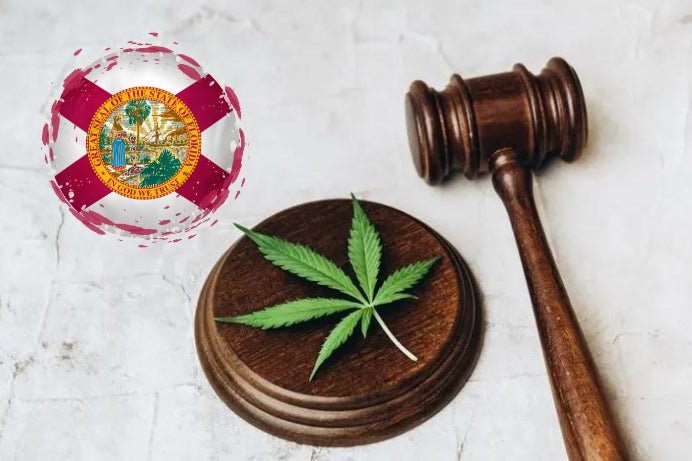During a highly anticipated Congressional hearing last week, the new agency chief provided eye-opening testimony on the future of marijuana and its lesser-known hemp sibling.

One of the more frustrating roadblocks facing stakeholders and advocates of the marijuana and hemp industries is the lack of decisive action by Congress and specific regulatory agencies in charge of monitoring the two plants.
In particular, the inaction regarding issues ranging from rescheduling marijuana on the Controlled Substances List to the creation of a regulatory infrastructure to safely and effectively shepherd the manufacture and sale of the popular hemp-derived cannabinoid, CBD, is troubling to growers, manufacturers, and retailers in both sectors.
To address those pressing concerns, U.S. Rep. James Comer, a Kentucky Republican and the chair of the House Committee on Oversight and Accountability, convened a hearing last week to interview the new commissioner of the U.S. Food and Drug Administration (FDA), Robert Califf, to discuss his agency’s “poor record” on cannabis rescheduling and the regulation, or lack thereof, of CBD.
According to numerous media outlets, Califf testified before House Oversight and Accountability Committee members on Thursday to discuss his vision for both plant medicine industries and the agency’s role in fulfilling those goals.
One of the main topics of discussion concerned the long-delayed and much-anticipated decision by the U.S. Drug Enforcement Agency (DEA) regarding the rescheduling of cannabis from the highly restricted Schedule I designation to Schedule III of the Controlled Substances Act.
Regarding that question, Califf said there’s “no reason” for the DEA to prolong the delay in its decision to move marijuana to Schedule III. However, he did make a rather unsettling suggestion, hinting that the law enforcement agency could ultimately treat adult-use marijuana, now legal in half the states, markedly different than marijuana sold and consumed for medicinal purposes.
“Medical marijuana is one thing, whether there’s a medical purpose and proven through traditional medical pathways, but when it’s used for recreational purposes, there is no medical benefit,” Califf said.
"Medical marijuana is one thing, whether there’s a medical purpose and proven through traditional medical pathways, but when it’s used for recreational purposes, there is no medical benefit."
- New U.S. Food and Drug Administration (FDA) Director Robert Califf
For many industry analysts, that type of unprecedented “bifurcation,” if applied to the rescheduling recommendation, could have a massive and profound effect on the regulated cannabis industry in America. For example, it could potentially mean that medical marijuana companies would enjoy tax relief afforded other Schedule III narcotics that adult-use operators would not.
Califf’s remarks on the topic came in response to a question posed by U.S. Rep. Nancy Mace (R-SC), a passionate and vocal supporter of cannabis reform at the federal level. She asked him if he had “any update” on the DEA’s evaluation of the FDA’s Aug. 29 report indicating cannabis possesses medicinal value and should, therefore, be moved from Schedule I to III.
“I don’t even know, but if I did, I couldn’t tell you anyway. I know there’s no reason for DEA to delay. I think they just have to take into account all the regulations that are in play,” he responded.
"I don’t even know, but if I did, I couldn’t tell you anyway. I know there’s no reason for DEA to delay. I think they just have to take into account all the regulations that are in play."
- New U.S. Food and Drug Administration (FDA) Director Robert Califf
However, the main impetus for the hearing concerned the regulatory body’s treatment of the hemp industry, most notably CBD. During his testimony last Thursday, Califf, who succeeded Janet Woodcock as head of the FDA this past January, reiterated her previous statements on CBD by saying the current rules for food and dietary supplements are insufficient for the hemp derivative and that Congress needs to create a new regulatory route for the cannabinoid, preferably one that includes provisions for better educating the public.
He also repeated Woodcock and the agency’s contention that CBD is not safe enough to be sold lawfully as a dietary supplement, again placing the onus on congressional lawmakers to develop a dedicated pathway for regulating the enigmatic hemp offering. Under the Federal Food, Drug, & Cosmetic Act, any substance, including CBD, must meet specific safety standards to be sold as a dietary supplement or food additive, Califf noted.
During his remarks, he also stated, “The use of CBD raises safety concerns, especially with long-term use. Studies have shown evidence of liver toxicity, interactions with certain medications, and possible harm to the male reproductive system. CBD exposure is particularly concerning for children and during pregnancy.”
"The use of CBD raises safety concerns, especially with long-term use. Studies have shown evidence of liver toxicity, interactions with certain medications, and possible harm to the male reproductive system. CBD exposure is particularly concerning for children and during pregnancy."
- New U.S. Food and Drug Administration (FDA) Director Robert Califf
Unsatisfied with that response, Chairman James Comer aggressively rebuffed the FDA’s continued assertion that current rules prohibit the agency from properly regulating CBD.
“The FDA’s refusal to regulate hemp products is creating a significant confusion in the market and resulting in products with intoxicants that can be dangerous to Americans who use these products. It has also halted businesses trying in good faith to enter the market while bad actors continue to thrive,” Comer said.
"The FDA’s refusal to regulate hemp products is creating a significant confusion in the market and resulting in products with intoxicants that can be dangerous to Americans who use these products. It has also halted businesses trying in good faith to enter the market while bad actors continue to thrive."
- U.S. Rep. James Comer (R-KY)
The lack of definitive rules for CBD, long-awaited by patient market stakeholders, has become a significant factor in stalling further investment in the still young and burgeoning industry. That lack of continued financial momentum is the main reason for the substantial downsizing in the sector nationwide for the past three years.
If and when the FDA decides, with or without legislative guidance from Congress, to draw up and implement new rules allowing hemp-derived cannabinoids, like CBD, to be treated as food additives or supplements instead of drugs, economic interest in the sector could return.
But the clock is ticking for many small to medium-sized business owners in the much-maligned and misunderstood hemp industry. Without definitive guidance from the FDA, the market could continue to shrink and even collapse, an outcome no one outside of Big Cannabis wants to see.








































